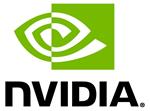NVIDIA QODA Unified Programming Platform Adopted by Community’s Global Leaders to Enable Quantum-Accelerated AI, HPC, Health and Finance Applications
SANTA CLARA, Calif., July 12, 2022 (GLOBE NEWSWIRE) — NVIDIA today announced a unified computing platform for speeding breakthroughs in quantum research and development across AI, HPC, health, finance and other disciplines.
The
NVIDIA Quantum Optimized Device Architecture
, or QODA, aims to make quantum computing more accessible by creating a coherent hybrid quantum-classical programming model. QODA is an open, unified environment for some of today’s most powerful computers and quantum processors, improving scientific productivity and enabling greater scale in quantum research.
HPC and AI domain experts can use it to easily add quantum computing to existing applications, leveraging both today’s quantum processors, as well as simulated future quantum machines using
NVIDIA DGX
systems and a large installed base of NVIDIA GPUs available in scientific supercomputing centers and public clouds.
“Scientific breakthroughs can occur in the near term with hybrid solutions combining classical computing and quantum computing,” said Tim Costa, director of HPC and Quantum Computing Products at NVIDIA. “QODA will revolutionize quantum computing by giving developers a powerful and productive programming model.”
Leading quantum organizations are already using NVIDIA GPUs and highly specialized NVIDIA software –
NVIDIA cuQuantum
– to develop individual quantum circuits. With QODA, developers can build complete quantum applications simulated with NVIDIA cuQuantum on GPU-accelerated supercomputers.
Today, at the Q2B conference in Tokyo, NVIDIA announced QODA collaborations with quantum hardware providers IQM Quantum Computers, Pasqal, Quantinuum,
Quantum Brilliance
and Xanadu; software providers QC Ware and
Zapata Computing
; and supercomputing centers Forschungszentrum
Jülich, Lawrence Berkeley National Laboratory
and Oak Ridge National Laboratory.
“Quantinuum is partnering with NVIDIA to enable users of Quantinuum’s H-series quantum processors, powered by Honeywell, to program and develop the next generation of hybrid quantum-classical applications with QODA,” said Alex Chernoguzov, chief engineer at Quantinuum. “This ties together the best performing classical computers with our world-class quantum processors.”
“The hybrid quantum-classical capabilities developed by NVIDIA will enable HPC developers to accelerate their existing applications by providing an efficient way to program quantum and classical resources in a consolidated environment,” said Yudong Cao, chief technology officer at Zapata. “Near-term applications in chemistry, drug discovery, materials science and more can now be seamlessly integrated with quantum computing, driving new discoveries in these fields as practical quantum advantage emerges.”
Learn more about
NVIDIA QODA
and watch the
NVIDIA special address
.
About NVIDIA
Since its founding in 1993,
NVIDIA
(NASDAQ: NVDA) has been a pioneer in accelerated computing. The company’s invention of the GPU in 1999 sparked the growth of the PC gaming market, redefined computer graphics and ignited the era of modern AI. NVIDIA is now a full-stack computing company with data-center-scale offerings that are reshaping industry. More information at
https://nvidianews.nvidia.com/
.
For further information, contact:
Alex Shapiro
Senior PR Manager
NVIDIA Corporation
+1-415-608-5044
[email protected]
Certain statements in this press release including, but not limited to, statements as to: the benefits, abilities, and impact of our products and technologies, including NVIDIA QODA, NVIDIA DGX systems, NVIDIA GPUs, and NVIDIA cuQuantum; scientific breakthroughs occurring in the near term with hybrid solutions combining classical computing and quantum computing; our collaborations with third parties; and the impact of near-term applications in chemistry, drug discovery, materials science and more being seamlessly integrated with quantum computing are forward-looking statements that are subject to risks and uncertainties that could cause results to be materially different than expectations. Important factors that could cause actual results to differ materially include: global economic conditions; our reliance on third parties to manufacture, assemble, package and test our products; the impact of technological development and competition; development of new products and technologies or enhancements to our existing product and technologies; market acceptance of our products or our partners’ products; design, manufacturing or software defects; changes in consumer preferences or demands; changes in industry standards and interfaces; unexpected loss of performance of our products or technologies when integrated into systems; as well as other factors detailed from time to time in the most recent reports NVIDIA files with the Securities and Exchange Commission, or SEC, including, but not limited to, its annual report on Form 10-K and quarterly reports on Form 10-Q. Copies of reports filed with the SEC are posted on the company’s website and are available from NVIDIA without charge. These forward-looking statements are not guarantees of future performance and speak only as of the date hereof, and, except as required by law, NVIDIA disclaims any obligation to update these forward-looking statements to reflect future events or circumstances.
© 2022 NVIDIA Corporation. All rights reserved. NVIDIA and the NVIDIA logo are trademarks and/or registered trademarks of NVIDIA Corporation in the U.S. and other countries. Other company and product names may be trademarks of the respective companies with which they are associated.
A photo accompanying this announcement is available at
https://www.globenewswire.com/NewsRoom/AttachmentNg/34b296f0-5e2c-47bb-a99e-554fd1ea7812









